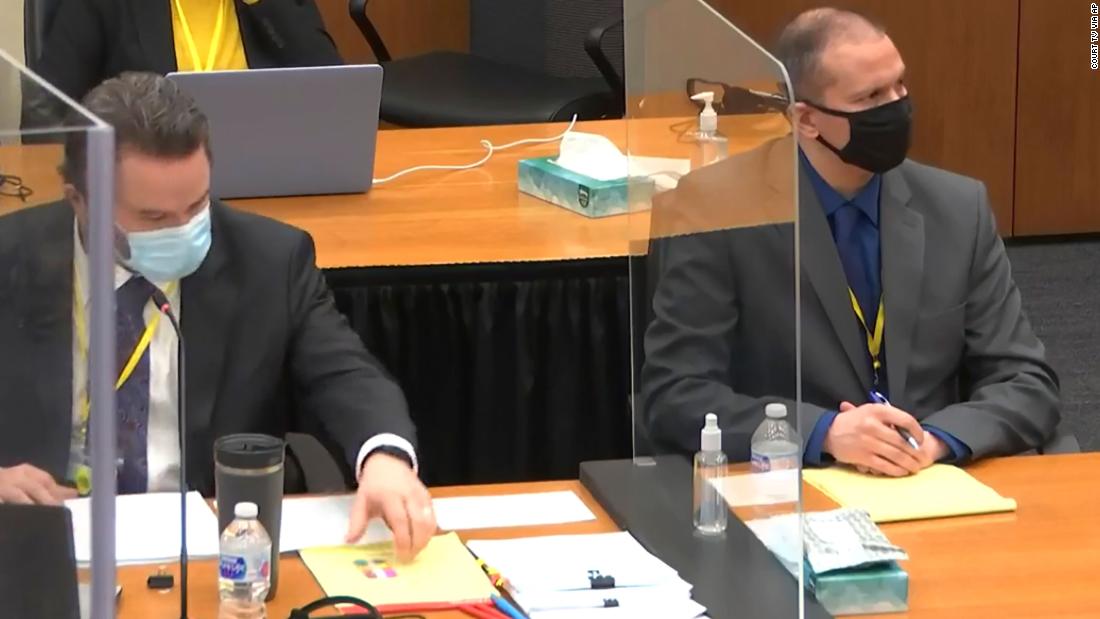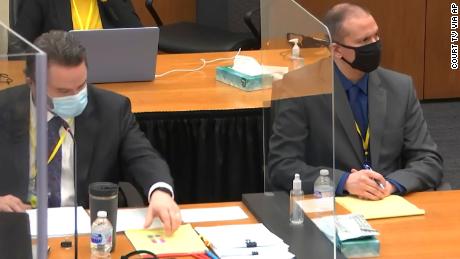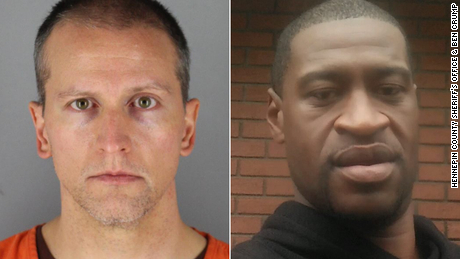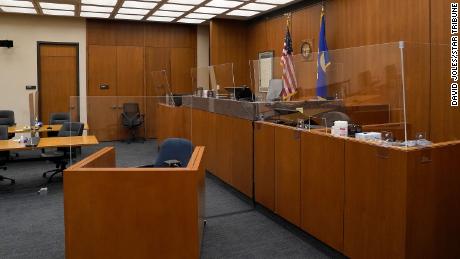What we know about the jurors selected so far
In total, five men and one woman have been chosen to serve as jurors during the trial in Minneapolis. Three were selected on Tuesday, two were selected Wednesday and one has been selected Thursday.
Opening statements are expected to start no earlier than March 29, followed by testimony that could take about four weeks.
Who was selected
Nelson is questioning the prospective jurors for the defense, while Steve Schleicher is questioning them for the prosecution. Judge Peter Cahill is presiding over the trial.
Three jurors were selected on the first day of jury selection on Tuesday, and two jurors were selected on Wednesday. One has been chosen on Thursday.
The first juror selected was a White man in his 20s or 30s who works as a chemist and said he has an analytical mind.
The second juror was a woman of color who appears to be in her 20s or 30s, according to a pool reporter’s observations in court. She said she was “super excited” about getting the jury questionnaire form.
The third juror selected was a White man in his 30s who works as an auditor.
The fourth juror was a White man in his late 30s or 40s who said he had a “very favorable” view of Black Lives Matter. He also said he believed police are more truthful than other witnesses. The juror is planning to get married on May 1 and told the court that if he was selected for the trial it could delay the wedding.
“Go ahead and throw me under the bus with your fiancée,” the judge joked. The juror replied, “Okay, I will do that.”
The fifth juror selected was a Black man in his 30s or 40s who moved to the US 14 years ago and works in information technology. He said that he had a “somewhat negative” opinion of Chauvin, that he strongly disagreed with defunding the police, and that police make him feel safe.
The sixth juror was a man who works as a truck driver who said that Chauvin “gave me the impression of showing off his authority” in the video of Floyd’s death.
Who was excused
If the defense or prosecution believes a person cannot be impartial in the case, they can ask the court to dismiss the person for cause. Each side has unlimited challenges for cause.
Prosecutors and defense attorneys can also move to dismiss prospective jurors without cause using what’s called a peremptory challenge. Chauvin’s team is allowed 15 of these challenges and the prosecution has nine. These peremptory challenges can themselves be challenged, though, if they are based on race, ethnicity or sex — known as a Batson challenge.
Six people were excused from serving on the jury on Tuesday, and nine have been excused on Wednesday.
The defense used peremptory strikes Wednesday on a Hispanic woman who said her English was not great and on a Hispanic man who had martial arts training. The state raised a Batson challenge and argued that the strikes were race-based, but the defense disagreed, and the judge sided with the defense’s race-neutral reasoning.
The defense also used a strike on a man who appears to be Asian in his 30s or 40s and a White man in his 60s.
The prosecution used a peremptory strike on a White man in his 50s or 60s who said people should not second guess police officers’ decisions as well as a White woman in her 60s who said she had high trust in police. A White woman in her 30s who is a practicing attorney was released.
Two prospective jurors — both who were White — were excused by the judge Wednesday.
CNN’s Brad Parks contributed to this report.
![]()








